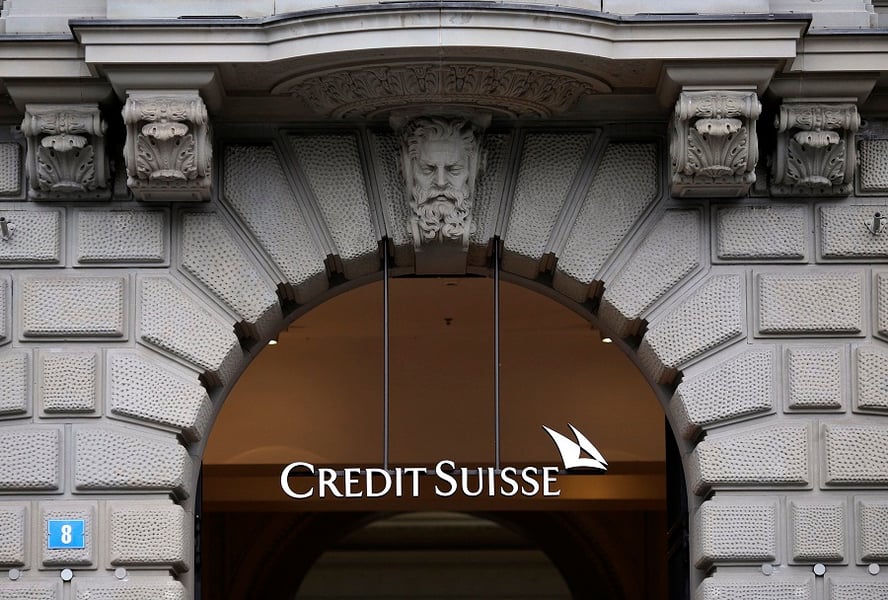

As Credit Suisse's shares hit fresh lows Monday morning, the Swiss bank's potential problems appeared to be having little impact — so far — on the broader U.S. wealth management business.
The bank spent the weekend fending off speculation about the weakness of its finances, according to multiple reports. Monday morning, Credit Suisse shares hit a new 52-week low of $3.70 on the NYSE, before rebounding slightly. Its last high occurred on Nov. 1, 2021, when its shares were trading at $11.04.
According to the New York Times, over the weekend the bank sent executives a memo that provided talking points to reassure clients, highlighting that it had $100 billion to cover losses and also had $238 billion in high-quality liquid assets at the end of June. The bank has also been hit with reported combined losses of $7 billion from the collapses of hedge fund Archegos Capital Management and UK lender Greensill Capital.
Credit Suisse pulled out of the U.S. financial advisory business in 2015 when it said it was shuttering its private banking business here. At the time, it had about 220 financial advisers, and it entered into an agreement with Wells Fargo to recruit many of those FAs. Some brokers who didn't go to Wells Fargo later got into legal disputes with Credit Suisse over deferred compensation that the bank held onto, and some of those cases have cost Credit Suisse millions of dollars in lost industry arbitration decisions.
"Credit Suisse exited the U.S. marketplace several years ago," said Dennis Gallant, associate director at ISS Governance. "I don’t see a material impact on the broader wealth management industry here despite potential problems at the bank."
Share prices of large wealth management companies have been under pressure this year in the face of the bear market. The iShares U.S. Broker-dealers & Exchanges ETF (IAI) is down 21.3% for 2022 but was trading at $86.83 close to midday Monday, an increase for the day of almost 1.7%. Shares of LPL Financial Holdings Inc. (LPLA) are up 38% year-to-date and were trading at $220.69 near midday, a one-day increase of slightly less than 1%.

A Texas-based bank selects Raymond James for a $605 million program, while an OSJ with Osaic lures a storied institution in Ohio from LPL.

The Treasury Secretary's suggestion that Trump Savings Accounts could be used as a "backdoor" drew sharp criticisms from AARP and Democratic lawmakers.

Changes in legislation or additional laws historically have created opportunities for the alternative investment marketplace to expand.

Wealth managers highlight strategies for clients trying to retire before 65 without running out of money.

Shares of the online brokerage jumped as it reported a surge in trading, counting crypto transactions, though analysts remained largely unmoved.
Orion's Tom Wilson on delivering coordinated, high-touch service in a world where returns alone no longer set you apart.
Barely a decade old, registered index-linked annuities have quickly surged in popularity, thanks to their unique blend of protection and growth potential—an appealing option for investors looking to chart a steadier course through today's choppy market waters, says Myles Lambert, Brighthouse Financial.
